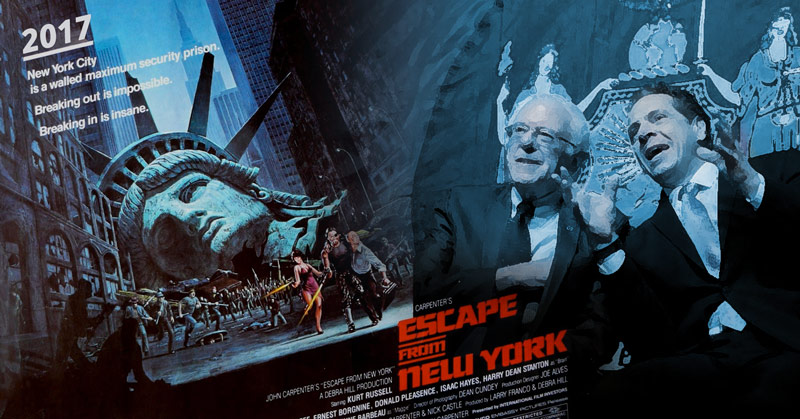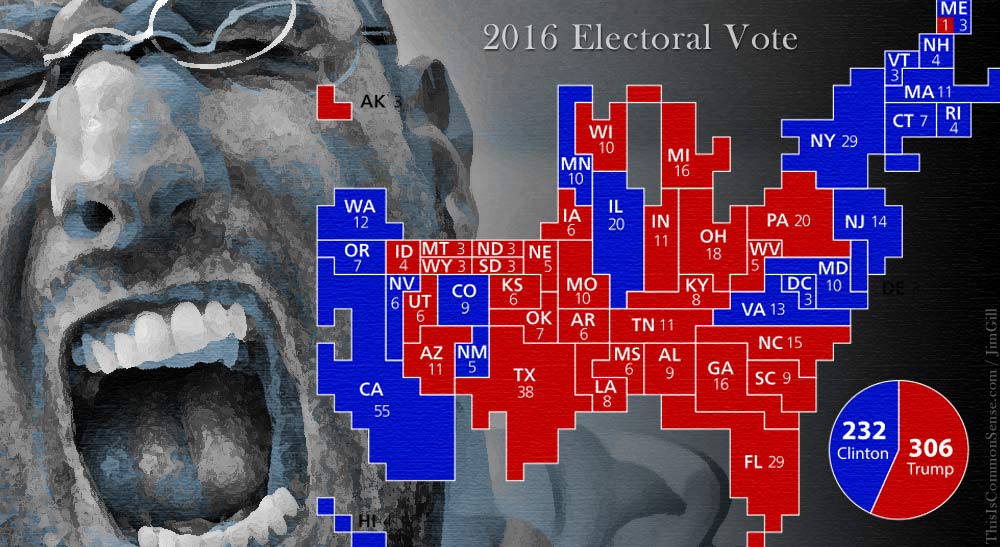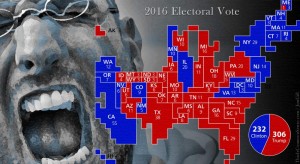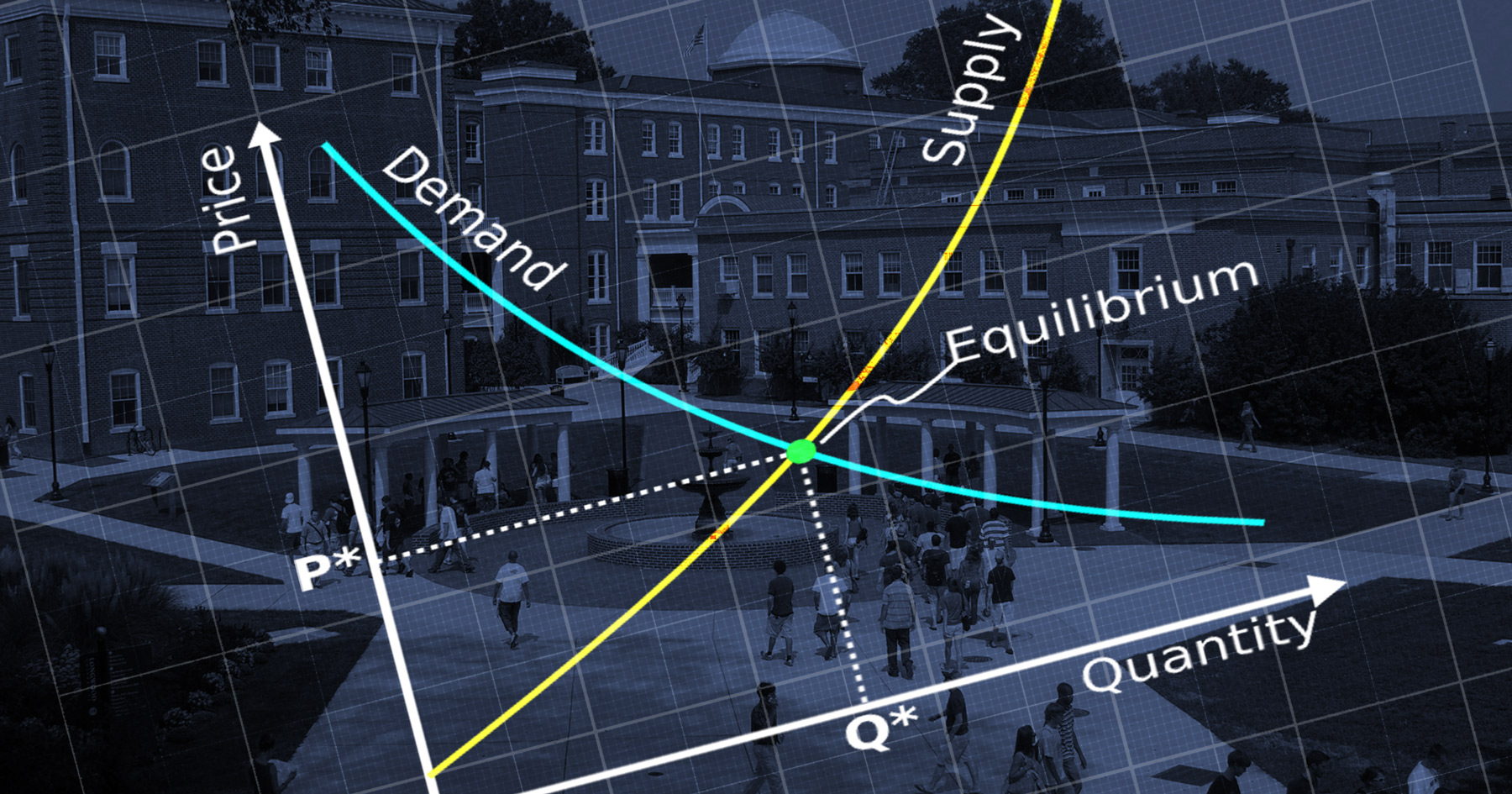“New York City is a walled maximum security prison,” exclaimed posters for Escape from New York (1981, R). “Breaking out is impossible.”
Now, as part of new legislation giving “free college” to New Yorkers, politicians take the same high concept from the film and extend it to the entire state.
What, you ask, does Escape from New York have to do with free college?
First, it’s not actually free college, but only free tuition for state and city colleges.* And note that tuition costs currently run less than half the price tag of room-and-board, books and fees. Moreover, the freebie is only for students whose parents earn less than $100,000 annually, beginning in Fall 2017. In 2018, the threshold jumps to $110,000 and to $125,000 in 2018.*
Gov. Andrew Cuomo, a likely 2020 Democratic Party presidential candidate, pushed the idea of bestowing free tuition in his State of the State address months ago. He also brought in Vermont Senator Bernie Sanders, who dangled free college during the 2016 campaign and has now introduced legislation in Congress.
But the Empire State Legislature amended the bill. Knowing full well the economic climate created by their previous policies, these venerable solons feared New Yorkers might take the free tuition, earn a degree and quickly move.
To someplace with jobs, perhaps.
So, the legislation requires student recipients of the free money to remain in the state – not escape – for as many years as they received the free moolah.
How will they keep graduates from leaving? Well, the movie trailer hyped that, “The bridges are mined. The rivers are patrolled.”
And those who leave also must pay back the tuition as a loan.
If caught.
This is Common Sense. I’m Paul Jacob.
* There’s also a subsidy program for those attending private institutions of higher learning, if those colleges match the $3,000 the State puts up.
** New York state ranks 16th in median household income, at $60,850 in 2014. Therefore, the cap will deny this benefit to quite a few upper middle class and wealthier families.









